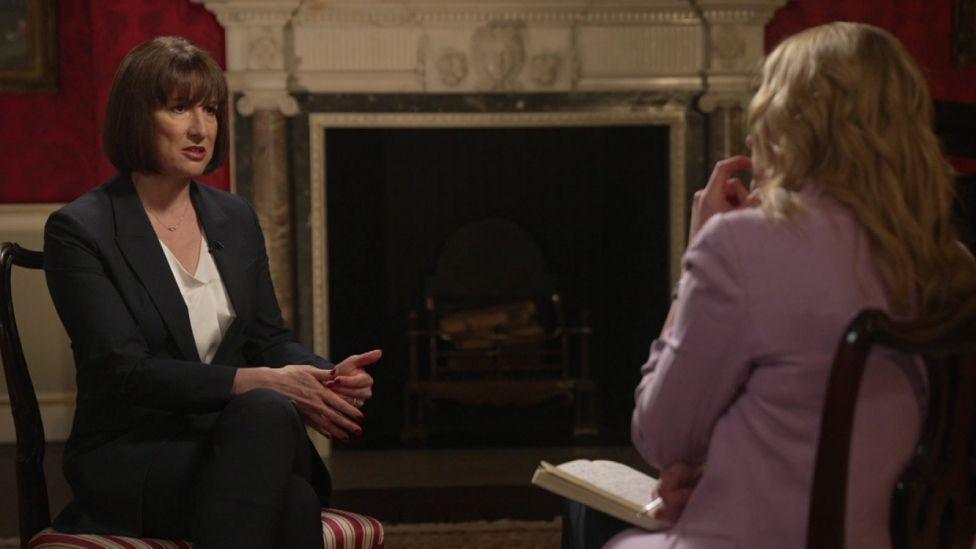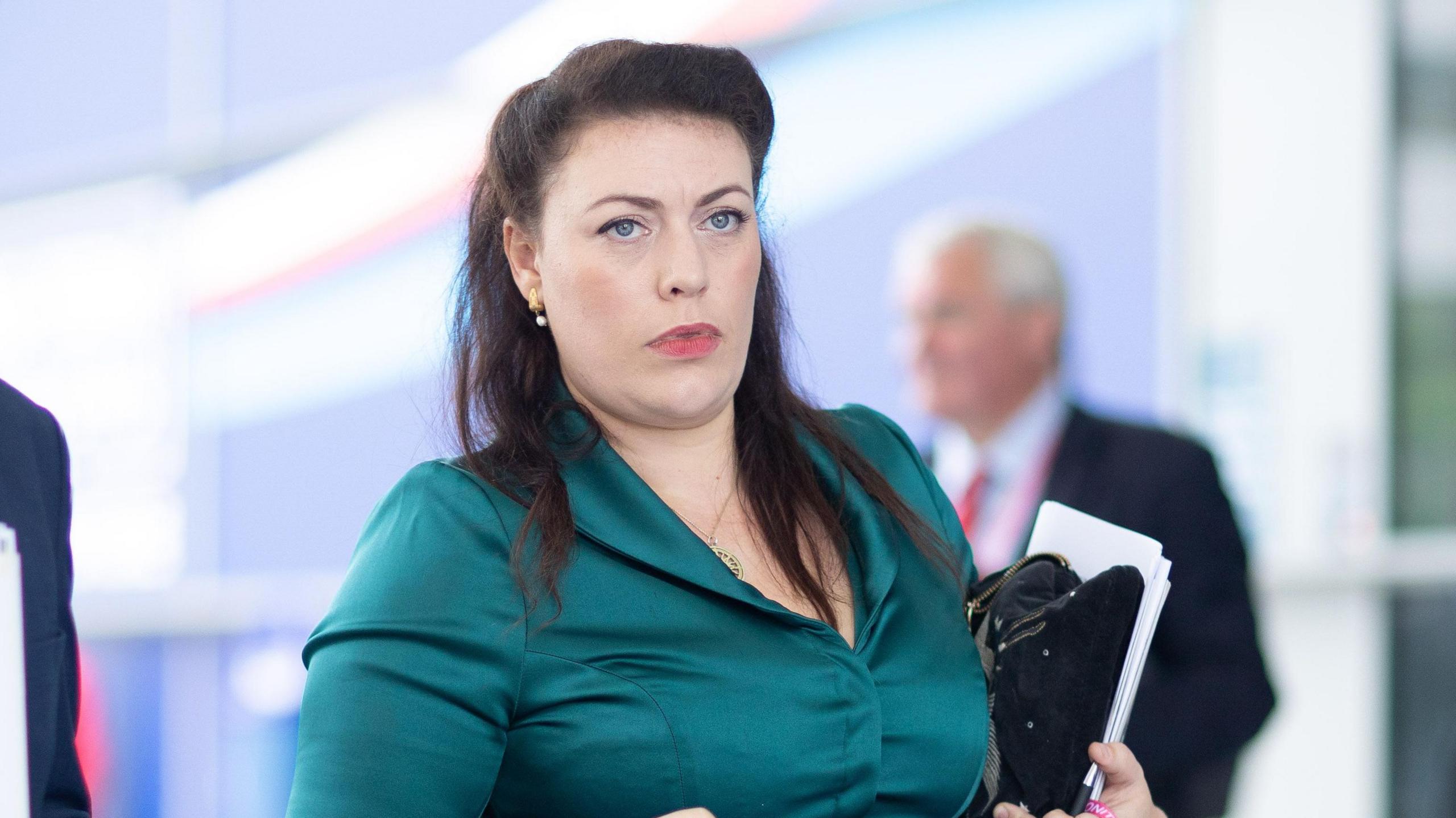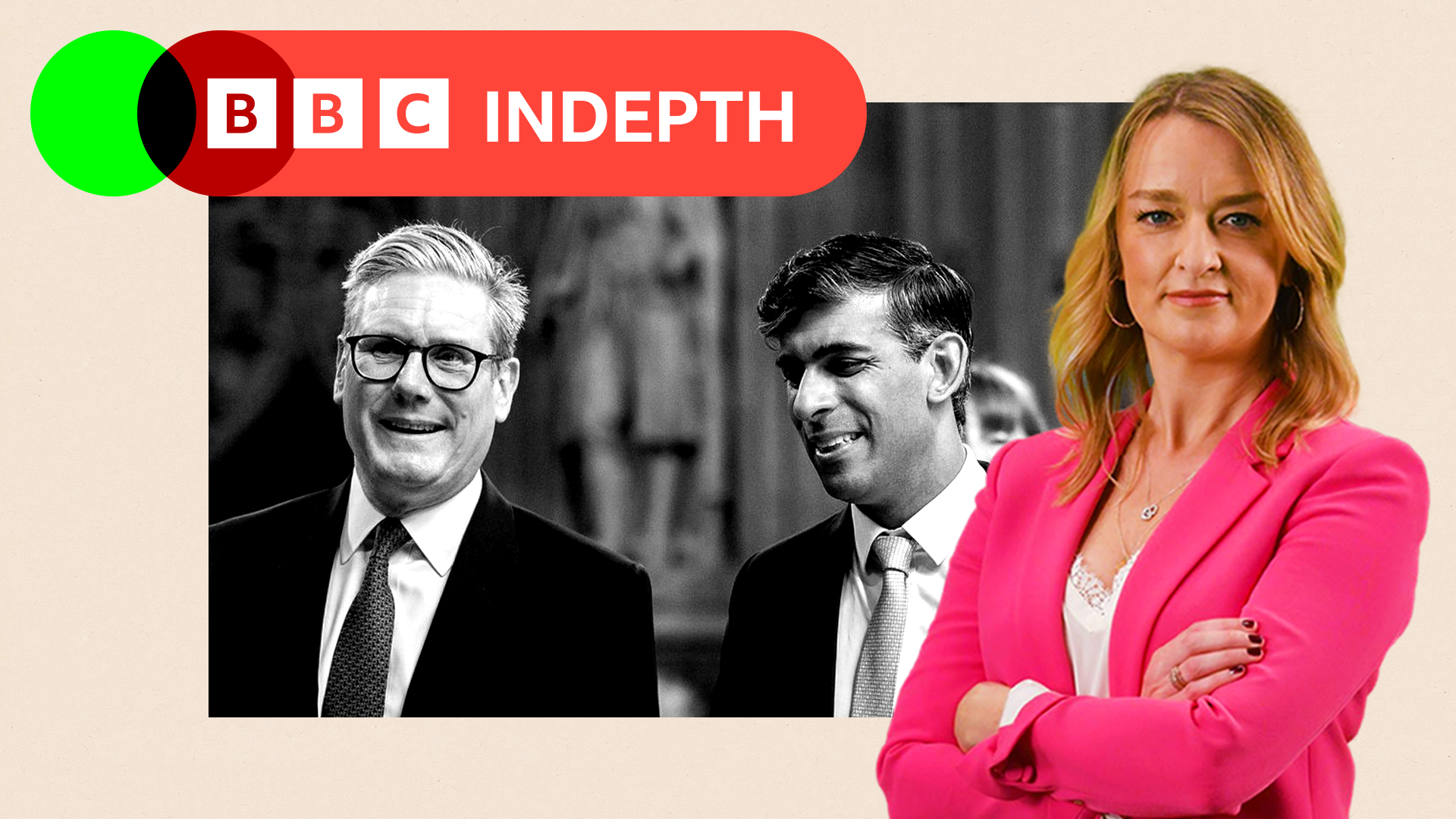Chancellor resists calls to lift two-child benefit cap
We can't promise to lift two-child benefit cap, says Reeves
- Published
The chancellor has said she will not make an "unfunded" pledge to lift the two-child benefit cap, amid pressure from Labour MPs to scrap the policy.
Some backbenchers are pushing for the government to reverse the cap, introduced under the Conservatives in 2017.
But Rachel Reeves told the BBC she could not pledge to do so without saying where the £3bn annual cost "is going to come from".
She added that other policies, such as introducing breakfast clubs in all English primary schools, showed Labour's commitment to tackling child poverty.
Around 1.6 million children live in a household affected by the cap, which prevents almost all parents from claiming universal credit or child tax credit for a third child.
Labour's landslide election victory has led to renewed calls from anti-poverty charities for it to be scrapped, with Scottish Labour leader Anas Sarwar and Greater Manchester mayor Andy Burnham also backing calls for a change.
Some of the party's backbenchers want to use a debate on the King's Speech in Parliament on Monday to put pressure on the new government over this issue.
An amendment signed by around a dozen backbenchers has no chance of passing given the new government's huge working majority of 180 MPs.
But the backbench rebellion is likely to provide an early test for the new government ahead of its first Budget in the autumn.
Labour put a prudent approach to public spending at the heart of its election campaign and has a self-imposed rule that plans for day-to-day spending must be matched by projected revenue from taxation.
Why is there fresh controversy over the two-child benefit cap?
- Published11 July 2024
SNP tables amendment to scrap two-child benefit cap
- Published18 July 2024
Asked by the BBC's Laura Kuenssberg whether she would back calls to make the change, Ms Reeves replied: “It costs more than £3bn a year.
"We were really clear during the election that we were not going to make spending commitments without being able to say where the money was going to come from.
"If we’re not able to say where the money is going to come from, we can’t promise to do it. That’s true when it comes to the two-child limit and anything else.”
She pointed to election policies such as bringing in new workers' rights, breakfast clubs in primary schools and creating new nursery places as evidence that Labour was still committed to reducing child poverty.
“Previous Labour governments have lifted kids out of poverty. It is what is in our DNA. We will do that, but I’m not willing to make unfunded commitments”.
'Social cleansing'
But Zara Sultana, one of the Labour backbenchers pushing for a change, said reversing the change was “not a radical demand”.
Also speaking to Laura Kuenssberg, she added that doing so was a "matter of political will” and accused the chancellor of “not looking in the right places”.
She suggested increasing taxes on wealth and raising capital gains tax, paid on the sale of assets, could be used to raise funds to pay for the policy.
In a sign of the depth of feeling within the party on the issue, fellow backbencher Rosie Duffield has described the cap as amounting to "social cleansing".
Writing in the Sunday Times, external, she added that the "sinister" policy was "an attack on women's right to choose how many children they have".
Save the Children, a charity, has estimated that scrapping the cap would take half a million children out of relative poverty.
It argues that government plans for an anti-poverty strategy will not be "credible" unless the cap is dropped at the autumn Budget.
The Institute for Fiscal Studies think tank has estimated, external that removing it would eventually cost the government £3.4bn a year, roughly 3% of the total budget for working-age benefits.
Related topics
You might also be interested in
- Published21 July 2024

- Published19 July 2024

- Published20 July 2024
